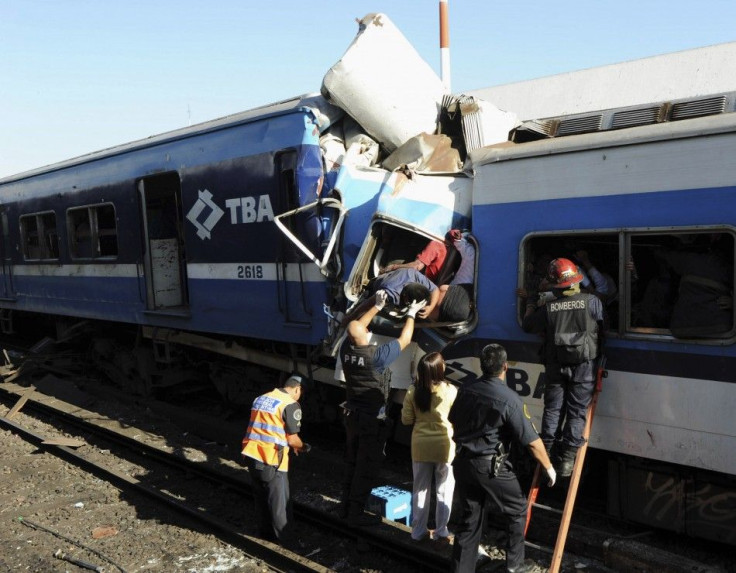Argentina?s Runaway Train System: Fatal Crashes Could Have Been Prevented

The government of Argentina is revoking the contract of a private transportation company whose mismanagement of metropolitan transportation lines resulted in the deaths of 51 people on Feb. 23.
It was rush hour on a Thursday morning when a train full of passengers rammed into the end of a platform at Once Station in Buenos Aires. In addition to the 51 fatalities, 703 people were injured, many of them permanently. The company that operated the route, Trenes de Buenos Aires (TBA), expressed deep regret over the incident.
It is still unclear whether the problem was mechanical or a result of human error; the motorman said the brakes had failed, according to the Associated Press, but further investigations show the operator may have been slightly drunk or drowsy.
A criminal investigation is in progress so that authorities can determine the exact cause of the crash. Thursday's decision to terminate the TBA contract was billed as an administrative decision.
The crash was the worst in Argentina since 1970, but it was not an isolated incident. The country has seen eight train accidents over the past four years, showing that the transportation sector is in dire need of reform.
Many warnings preceded the repeated tragedies. Transportation officials told AP that on the day of the Feb. 23 crash, TBA had hundreds of fines pending for irregularities in its service. According to the Christian Science Monitor, the office of the National Auditor had reported several shortcomings in the TBA rail system, including recurring brake problems. And railroad unions say they have been calling for maintenance repairs since 2005, with no response.
The Buenos Aires rail system was privatized beginning in 1991, in response to financial crises in Argentina. TBA took over two lines in 1995. Beginning in 2001, the government froze transportation prices and began subsidizing the private companies in order to keep them functional.
A recent report from the Center for Implementation of Public Policy for Equity and Growth, an Argentinian research organization, argues that the poorly implemented subsidy program is responsible for the decline of the Buenos Aires rail system.
An analysis of available indicators of supply, efficiency and quality shows that the metropolitan rail system deteriorated markedly since 1999. It was also shown that the management model in place since the end of convertibility-characterized by the application of massive subsidies to cover the operating costs-cut incentives for companies to invest in maintenance by divorcing the consumer revenues from quality provided.
Residents of the Buenos Aires metropolitan area enjoy startlingly low commuting costs because train companies count on government subsidies for most of their revenue. Very little was demanded of the train companies in exchange for this funding, allowing them to continue conducting business as usual despite rising concerns about passenger safety.
Now that tragedy has struck repeatedly, there is plenty of blame to go around. The government, regulatory agencies, and private company owners all contributed to the cycle of mismanagement in the Argentinian transportation sector.
Thursday's revocation of TBA's contract is a sound decision. But for those who lost friends and family in February's fatal crash, it should have been made years ago.
© Copyright IBTimes 2024. All rights reserved.






















